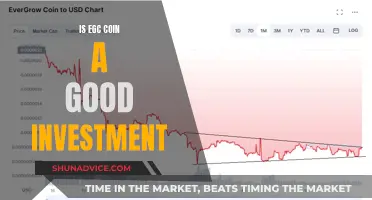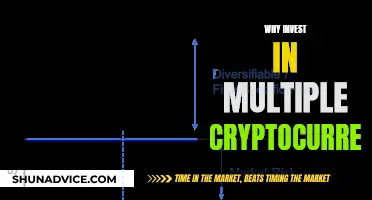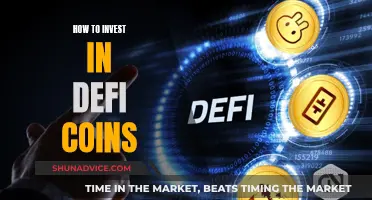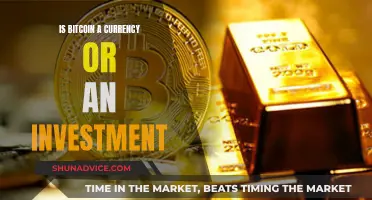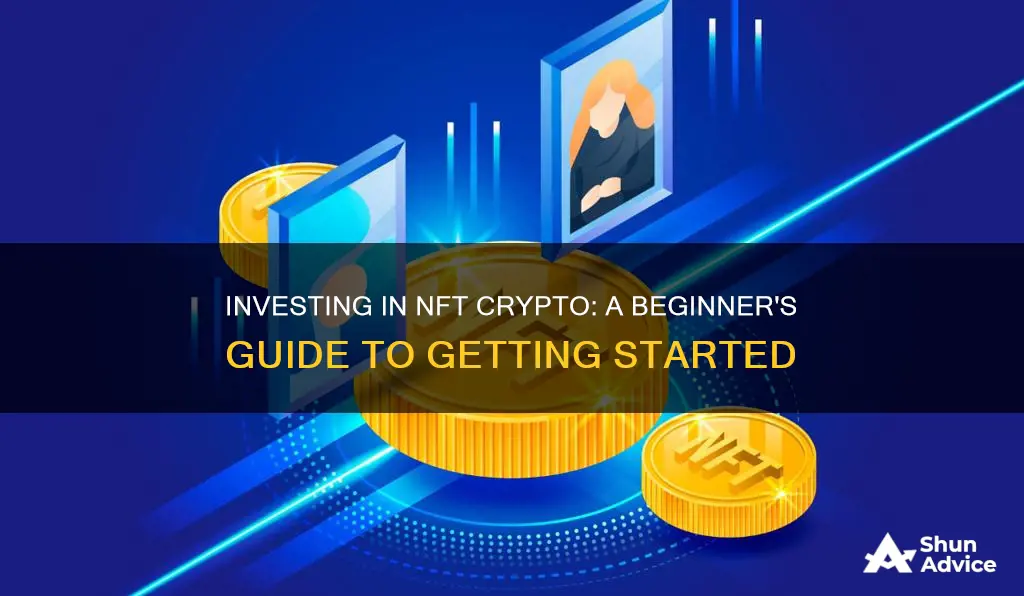
Non-fungible tokens (NFTs) are unique digital assets that are attractive to investors, blockchain technology providers, and other crypto players. They are built and managed on a blockchain, the same digital ledger technology system used by Bitcoin and other cryptocurrencies. NFTs are usually based on the Ethereum network, but other blockchains such as Solana and Polkadot are also used. NFTs can be used to indicate ownership of a wide range of unique assets, from digital art and music to physical property and collectibles. They have gained popularity during the pandemic, with buyers paying millions of dollars for digital art pieces. While the NFT market is still in its early days and can be risky, it has the potential to revolutionise various industries, including gaming and collectibles, by providing a secure way to prove authenticity and ownership.
| Characteristics | Values |
|---|---|
| Definition | Non-fungible tokens (NFTs) are digital assets that act as secure documentation of ownership. |
| Fungibility | NFTs are non-fungible, meaning they possess unique attributes that make them impossible to replace or exchange. |
| Use Cases | NFTs are used to indicate ownership of unique assets, usually digital assets such as art, music, videos, or in-game items. They can also be used for physical assets like property, collectibles, or physical works of art. |
| Blockchain | NFTs are built and managed on a blockchain, typically the Ethereum network, but other blockchains like Solana and Polkadot are also used. |
| Advantages | NFTs create value by tokenizing assets, eliminating duplication, and ensuring authenticity and ownership. They provide liquidity, potential for growth, and control over virtual assets. |
| Disadvantages | NFTs are risky investments due to volatility, potential counterfeits, and environmental impact. Creating and selling NFTs can be costly, and some projects may not guarantee full rights to the digital asset. |
| Marketplaces | NFTs are bought and sold on purpose-built NFT marketplaces like OpenSea, Rarible, SuperRare, and Foundation. |
| Purchase Process | To purchase an NFT, a crypto wallet must be opened and funded with the required cryptocurrency on the chosen marketplace. |
| Sales Process | To sell an NFT, the digital asset is uploaded to a supported marketplace, listed for sale at a fixed price or auction, verified, and then transferred to the buyer upon purchase. |

What are NFTs?
Non-fungible tokens, or NFTs, are unique cryptographic tokens that exist on a blockchain and cannot be replicated. They are typically built using the same kind of programming as cryptocurrency, but they are not interchangeable like cryptocurrencies are. NFTs are unique and cannot be traded or exchanged for one another, making them non-fungible.
NFTs can represent digital or real-world items like artwork, music, videos, in-game items, virtual avatars, video game skins, tweets, and even physical property. They are bought and sold online, often with cryptocurrency, and have unique identifying codes.
The process of creating an NFT is called minting, in which the asset's information is encrypted and recorded on a blockchain. Minting often involves incorporating smart contracts that assign ownership and manage NFT transfers. NFTs can be sold at a fixed price or via an auction, with the highest bidders winning.
The value of NFTs is based on what someone else is willing to pay for them, and they can be a risky investment. Their future is uncertain, and there is not much history to judge their performance. NFTs are also subject to capital gains taxes, and the cryptocurrencies used to purchase them may also be taxed if they have increased in value.
Some benefits of NFTs include market efficiency, streamlined investing, democratized investing through fractionalized ownership, and copyright protection for digital content creators. However, there are also concerns about the liquidity of NFTs, the environmental impact of the blockchain technology they are built on, and the potential for "counterfeit" NFTs.
The Future of Cryptocurrency: When to Invest and Why
You may want to see also

How to buy NFTs
Non-fungible tokens (NFTs) are unique digital assets that act as secure documentation of ownership. They are built and managed on a blockchain, the same digital ledger technology system used by Bitcoin and other cryptocurrencies. NFTs are usually based on the Ethereum network, but other blockchains such as Solana and Polkadot are also used.
To buy an NFT, you'll need to open and fund a crypto wallet on an NFT marketplace. A crypto wallet stores the cryptocurrencies needed to purchase an NFT. Different NFT marketplaces may require different cryptocurrencies, so it's important to check the requirements of the specific marketplace you plan to use. Top NFT marketplaces include OpenSea, Rarible, SuperRare, and Foundation.
Once you've set up your crypto wallet and funded it with the required cryptocurrency, you can browse the NFT marketplace for NFTs to purchase. NFTs can be bought at a fixed price or through an auction. It's important to thoroughly research any potential purchase, as not all NFT projects are created equal. Some projects may sell NFTs without the actual creative or ownership rights to the digital asset. Always read the NFT license agreement before buying, as this will outline your rights as a buyer.
After purchasing an NFT, it is typically yours to do with as you please. You can keep it as a collectible, display it for others to see, or use it as part of a larger digital project. You also have the option to list it for sale on the NFT marketplace. However, keep in mind that creating and selling NFTs may incur fees, and the value of NFTs can fluctuate based on demand.
Strategizing Your Bitcoin Investment: Key Considerations
You may want to see also

NFT marketplaces
OpenSea is the most popular and widely used NFT marketplace. It launched in 2017 and has hosted many popular NFTs, including art, music, photography, trading cards, and virtual worlds. The core cryptocurrencies used on OpenSea are Ethereum, Solana, Polygon, Avalanche, and BNB, although other cryptos are also accepted. OpenSea is user-friendly for beginners, who can set up an account for free and browse NFTs immediately. It charges a fee of 2.5% for every transaction and additional fees for listing items on Ethereum.
Rarible is another popular NFT marketplace that allows users to buy and sell art, collectibles, video game assets, and NFTs. It uses the cryptocurrencies Ethereum, Polygon, Tezos, and Immutable X and charges fees for its services. An interesting aspect of Rarible is that it has its own native token, RARI, which allows holders to vote on company decisions.
SuperRare is a high-end NFT art marketplace that positions itself as an art gallery in the NFT ecosystem. It is highly selective with NFT submissions and charges 15% for the first sale of an NFT on the primary market, as well as a flat 3% fee for every transaction paid by the buyer.
Foundation is another NFT listing platform built on the Ethereum blockchain. It charges a fee of 15% on each sale and allows artists to set a reserve price for their NFTs. If the reserve is met, a 24-hour auction begins, with the auction extended by 15 minutes if there are new bids in the last 15 minutes.
Nifty Gateway is a high-end marketplace for CryptoArt that partners with top artists, athletes, and celebrities. It is known for hosting expensive and exclusive NFT sales and charges a fee of 5% + 30 cents on every secondary sale.
Other NFT marketplaces include Mintable, Portion, Art Blocks, Zora Labs, and LooksRare, each with its own unique features and fees.
Calculating Your Bitcoin Investment's Average: A Simple Guide
You may want to see also

NFT risks
Non-fungible tokens (NFTs) are digital assets with unique attributes that make them impossible to trade or replace. They are built and managed on a blockchain, the same digital ledger technology system used by Bitcoin and other cryptocurrencies. NFTs can be used to prove ownership of a unique asset, such as a piece of art, music, or an item within a video game. While NFTs have the potential to be a worthwhile investment, there are several risks associated with them.
One of the primary risks of investing in NFTs is the volatility of the market. The NFT market is highly volatile, with prices fluctuating constantly. Buyers may end up purchasing an NFT only to see its value drop significantly, or they may make a substantial profit. This volatility is due to the subjective metrics used to value NFTs, such as buyer demand.
Another risk to consider is the illiquidity of NFTs. Liquidity refers to how quickly an asset can be converted into cash. With NFTs, an individual may struggle to sell their asset if there are no buyers interested in purchasing it.
NFTs also face regulatory uncertainty, with different countries having varying policies regarding them. In the US, for example, there is a lack of clear regulations governing NFTs, which makes it challenging to assess and mitigate risks when buying or selling them.
Additionally, there is a risk of counterfeit or fake NFTs. As the NFT market gains popularity, instances of cyber attacks and fraudulent activities increase. Fake NFT stores may impersonate legitimate ones, selling non-existent or bait NFTs to unsuspecting buyers. Buyers must exercise caution and conduct thorough research to verify the legitimacy of sellers and their ownership of the NFTs being sold.
The environmental impact of NFTs is another concern. The process of creating and verifying transactions for NFTs consumes a significant amount of energy, contributing to increased carbon dioxide emissions. This issue has led to discussions around ESG (Environmental, Social, and Governance) investment metrics and the potential need for regulatory changes.
Lastly, there are smart contract risks. Smart contracts are coded commands built into the blockchain that facilitate transactions. However, hackers can exploit weaknesses in smart contracts to steal crypto assets, as seen in the Poly Network hack, where $600 million worth of NFTs were stolen.
In conclusion, while NFTs offer unique opportunities for investors, they also come with a set of risks that should be carefully considered before investing. These risks include market volatility, illiquidity, regulatory uncertainty, counterfeit NFTs, environmental concerns, and smart contract vulnerabilities.
Bitcoin Z: A Smart Investment Choice?
You may want to see also

NFT advantages
Advantages of Investing in NFTs
Non-fungible tokens (NFTs) are unique digital assets stored on a blockchain. They are distinct from cryptocurrencies in that they are non-fungible, meaning they cannot be exchanged on a one-to-one basis and are therefore irreplaceable. NFTs can represent ownership of a wide range of digital and physical assets, from digital art and music to real estate and company shares. Here are some advantages of investing in NFTs:
- Improving market efficiency: NFTs have the potential to improve supply chains, reduce intermediaries, and increase security. For example, artists can now engage directly with their audiences, eliminating the need for expensive agents and time-consuming transactions.
- Fractional ownership: NFTs allow for the fractionalization of ownership of physical assets, such as real estate, artwork, and rare collectibles. This improves liquidity in the market and provides an alternative avenue for streamlined crowdfunding.
- Secure and tamper-proof technology: Blockchain technology, which underpins NFTs, is extremely secure. It ensures the authenticity of each digital asset and serves as a decentralized public ledger that records and verifies every transaction, making it virtually impossible to alter or counterfeit NFTs.
- Diversification of investment portfolios: NFTs are distinct from traditional assets such as stocks and bonds, offering a different risk profile that can boost the efficiency of an investment portfolio.
- Easy access and ownership: Anyone with an internet connection can participate in the NFT market on various online marketplaces, democratizing the art and collectibles market.
- Potential for ongoing royalties: NFTs provide a mechanism for artists and creators to receive ongoing royalties when their NFTs are resold on secondary markets.
UFT Coin: A Smart Investment Decision or Not?
You may want to see also
Frequently asked questions
NFTs stands for "non-fungible tokens." They are unique digital assets that act as secure documentation of ownership. NFTs are built and managed on a blockchain, the same digital ledger technology system utilized by Bitcoin and other cryptocurrencies.
To invest in NFTs, you'll need to open and fund a crypto wallet on an NFT marketplace. You can then use this wallet to bid on NFTs. Top NFT marketplaces include OpenSea, Rarible, SuperRare, and Foundation.
It's important to do your own research and only invest in things you understand. NFT projects vary in what they offer, and some may not guarantee the rights to the digital asset itself. It's also worth noting that NFT investments can be quite volatile.


